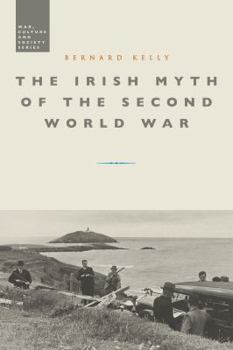The Irish Myth of the Second World War
Existing at the intersection of military history, literary criticism, social history and film studies, The Irish Myth of the Second World War challenges the dominant conception of Ireland's actions during the Second World War.
While other European neutrals fostered myths of unity and solidarity during the Second World War, Eire constructed a mixed narrative of pride at neutrality combined with an eagerness to claim an Irish contribution to Allied victory. An estimated 70,000 people from Eire joined the British armed forces during the Second World War; their presence allowed the de Valera government to claim that Irish neutrality had been beneficial to the Allies. Thus the Irish war myth depicts Eire as simultaneously within and outside the war, maintaining neutrality while assisting the Allies to victory. Instead, Bernard Kelly argues that this is a false construction. This book demonstrates how the Irish conception of the war has largely assimilated the main aspects of the British war myth, which has been transmitted into Ireland through British films, television and publications, while also adding specifically Irish dimensions to it. He argues that once the Northern Ireland conflict moved towards a political solution, Irish participation in the Second World War was inevitably held up as an example of British-Irish and North-South cooperation, and in the process the veteran's story of the war has been almost completely adopted by the Irish public. This is an important contribution to the history of the Second World War.Format:Hardcover
Language:English
ISBN:1474261787
ISBN13:9781474261784
Release Date:February 2022
Publisher:Bloomsbury Academic
Length:272 Pages
Related Subjects
HistoryCustomer Reviews
0 rating





